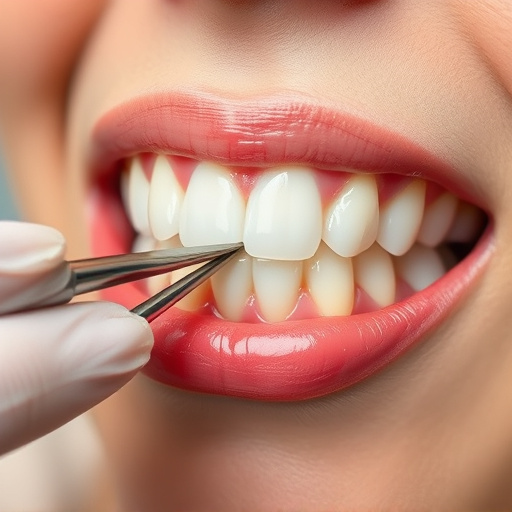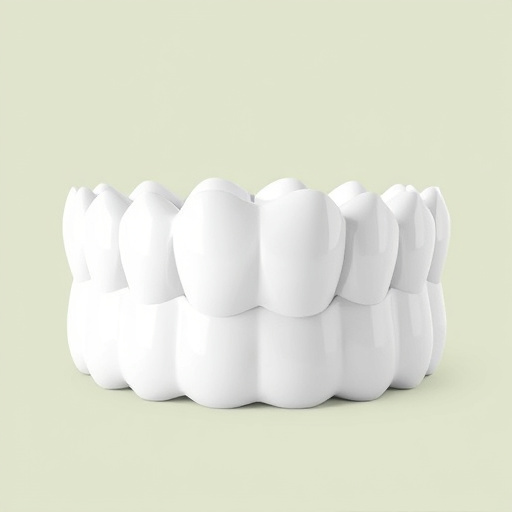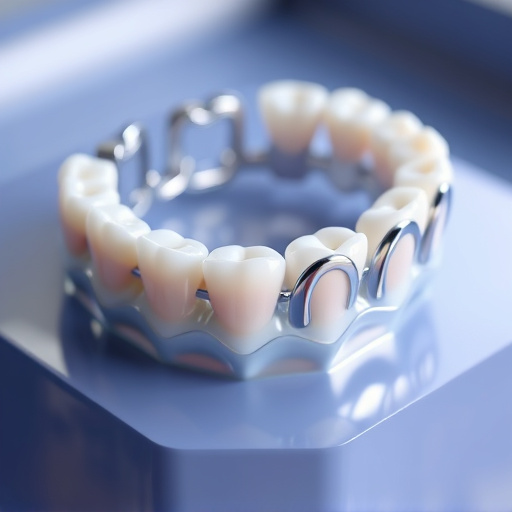Dental sealants for teeth are clear resin coatings that protect against decay by blocking acids and bacteria, preventing food buildup in pits and grooves, especially on back teeth. They complement good oral hygiene and dental check-ups, reducing cavity risk and fostering healthier smiles, particularly for children during routine cleanings.
Dental sealants for teeth offer a powerful defense against tooth decay and erosion caused by harmful acids. This protective coating, typically applied to molars, creates a barrier on the surface of the teeth, preventing food particles and bacteria from settling in hard-to-reach areas. By understanding how dental sealants work and their role in shielding teeth from acidic attacks, you can make informed decisions for maintaining optimal oral health.
- Understanding Dental Sealants: A Protective Coating
- The Role of Acids in Tooth Decay and Erosion
- How Sealants Create a Barrier Against Acidic Attack
Understanding Dental Sealants: A Protective Coating
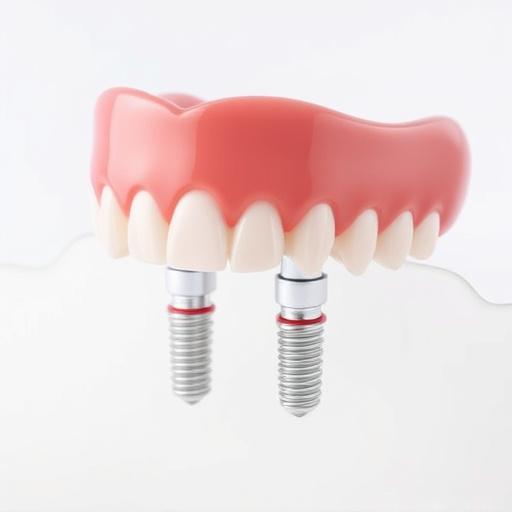
Dental sealants for teeth act as a protective coating, forming a barrier against harmful acids and bacteria that can cause tooth decay. This clear or white resin is carefully applied to the chewing surfaces of back teeth, where it bonds directly to the tooth enamel. By sealing these areas, dental sealants prevent food particles and plaque from getting trapped, reducing the risk of cavities and other dental issues.
Unlike dental bonding, which involves adhering a more substantial material to the tooth, dental sealants are designed for preventative care. They’re often recommended for children as part of their routine dentistry, especially after a thorough cleaning. This proactive approach not only saves time and money in the long run but also promotes better oral health habits from an early age, setting the stage for a lifetime of healthy smiles.
The Role of Acids in Tooth Decay and Erosion
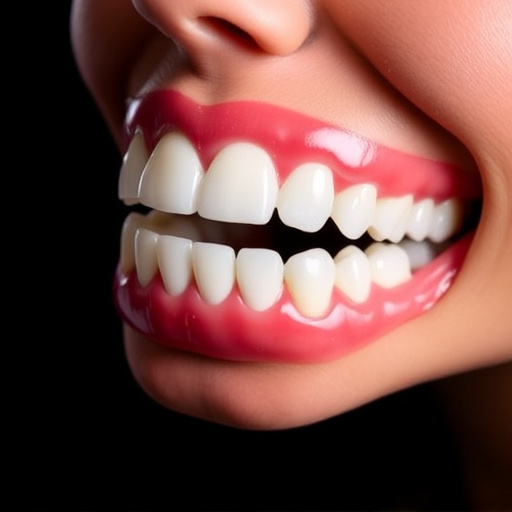
Tooth decay and erosion are primarily caused by acids that erode the tooth’s enamel, leading to cavities and sensitivity. Food and beverages high in sugar or acid can create an environment conducive to bacterial growth in the mouth, resulting in the production of these damaging acids. Regular teeth cleaning practices, such as brushing and flossing, help remove plaque buildup that contains these bacteria, but they cannot fully prevent the impact of acids already present on tooth surfaces. This is where dental sealants for teeth play a crucial role.
Dental sealants act as a protective barrier by sealing the pits and grooves on the chewing surfaces of teeth, preventing direct contact between acids and enamel. They are particularly effective in protecting against posterior teeth, which are more susceptible to erosion due to their location at the back of the mouth and frequent exposure to acidic foods and drinks. When combined with comprehensive dental care that includes regular check-ups, dental bonding, and proper oral hygiene, sealants offer a multi-layered defense against tooth decay and erosion, contributing to long-term oral health and overall well-being.
How Sealants Create a Barrier Against Acidic Attack
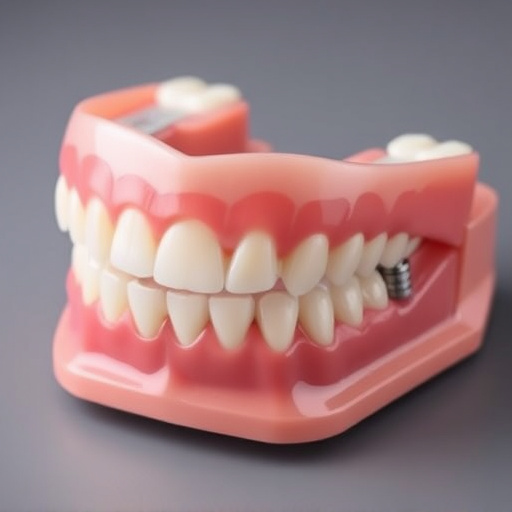
Dental sealants for teeth act as a protective barrier against harmful acids, offering a significant advantage in maintaining oral health. When applied to the chewing surfaces of back teeth, these thin, durable coatings create a physical shield that prevents bacteria and acidic foods from penetrating the tiny pits and crevices where tooth decay often begins. By sealing these vulnerable areas, dental sealants for teeth significantly reduce the risk of cavities forming.
This protective barrier is particularly beneficial in the fight against dietary acids, which can erode tooth enamel over time. Acidic foods and drinks, such as citrus fruits, sodas, and sugary snacks, create an environment conducive to the development of tooth decay. Dental sealants for teeth, made from materials like resin or glass ionomer, resist this acidic attack by forming a sturdy barrier that shields the underlying tooth structure. This simple yet effective preventive measure, often recommended by general dentistry professionals, complements regular brushing and flossing in cosmetic dentistry practices, contributing to a healthier, more durable smile.
Dental sealants for teeth act as an effective barrier against harmful acids, providing long-lasting protection for enamel. By understanding how these sealants work and their role in preventing tooth decay, individuals can make informed decisions about maintaining optimal oral health. Incorporating dental sealants into routine care is a proactive approach that keeps smiles strong and healthy.












